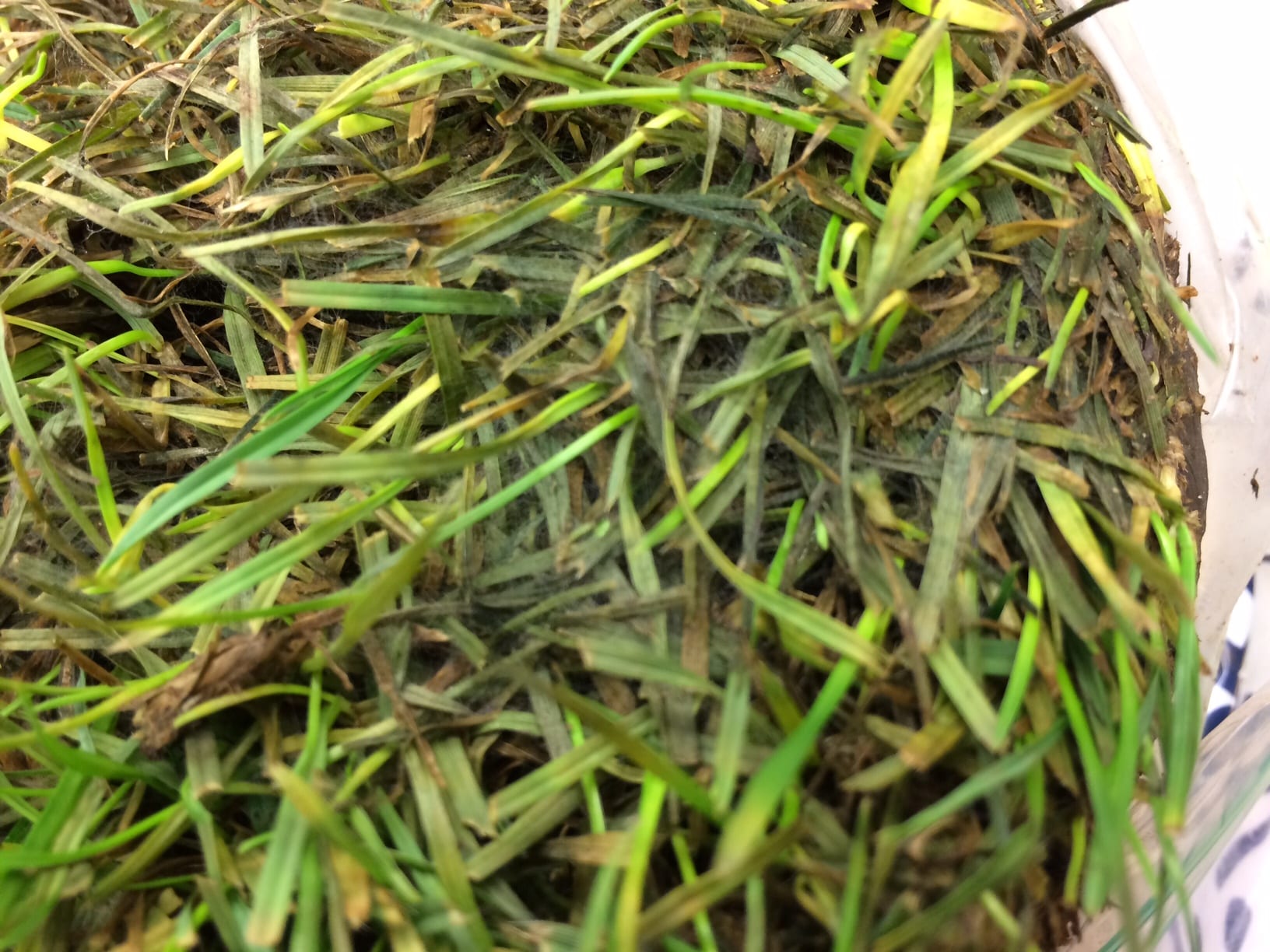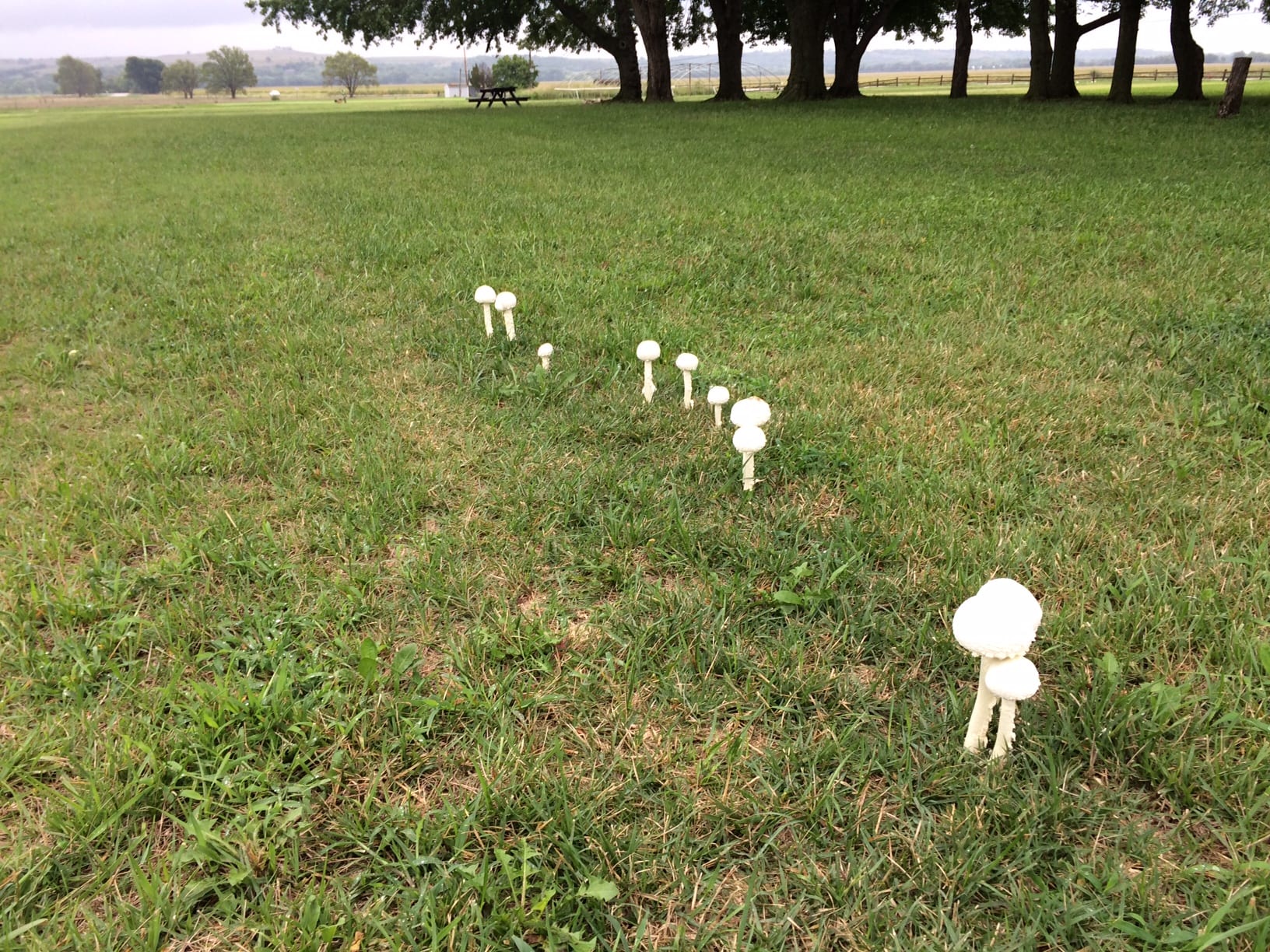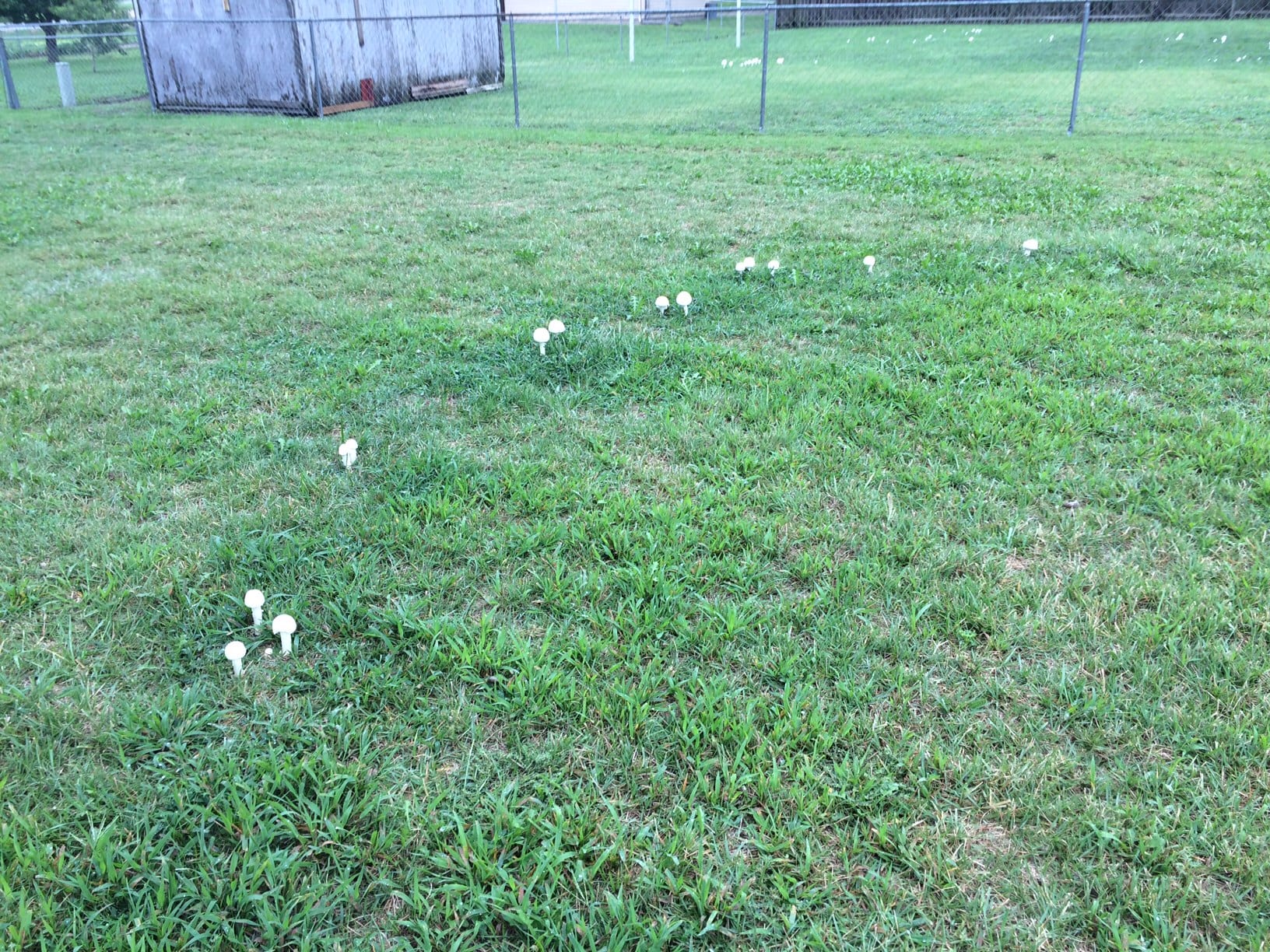(Megan Kennelly, KSU Plant Pathology)
Fungi love wet, humid conditions. Parts of Kansas have received a lot of moisture lately.
Here are a few recent examples:
Brown patch mycelium on a morning with fog and dew. If you look closely you’ll see the lesions, too.
Here is some foliar Pythium mycelium from another wet site:
You can see the white mycelial threads if you look closely. Also notice how the turf is so matted down and soggy/greasy in appearance.
At this location they had just sprayed tebuconazole, so how did the Pythium keep on rolling? Well, as you might remember, Pythium is not a true fungus, and some fungicides just do not work on it. Fungicides in the tebuconazole family (the DMI fungicides, FRAC code 3) have no effect on Pythium – you might as well be spraying water. For a list of products that DO have efficacy on Pythium foliar blight you can check this reference (p. 23) http://www2.ca.uky.edu/agcomm/pubs/ppa/ppa1/ppa1.pdf
Cultural practices are outlined HERE.
Conditions for both Pythium and brown patch “should” be ending soon, and cool fall weather alone acts as a natural fungicide to slow those 2 diseases down just as our cool-season grasses find themselves in optimal conditions to grow. Recovery and seeding season is right around the corner.
And, finally, after 4 inches of rains there were mushrooms everywhere:
Some mushrooms are associated with fairy rings, and there is some information about that HERE.
How do mushrooms pop up overnight? They are actually kind of pre-made, hanging out in the soil in a small egg-like structure. When moisture comes they can expand quickly, like one of those sponge-animals that expands when you put it in a bucket. There are lots of time-lapse videos out there that show mushroom growth – here is one example:
It’s kind of cool but creepy at the same time.






